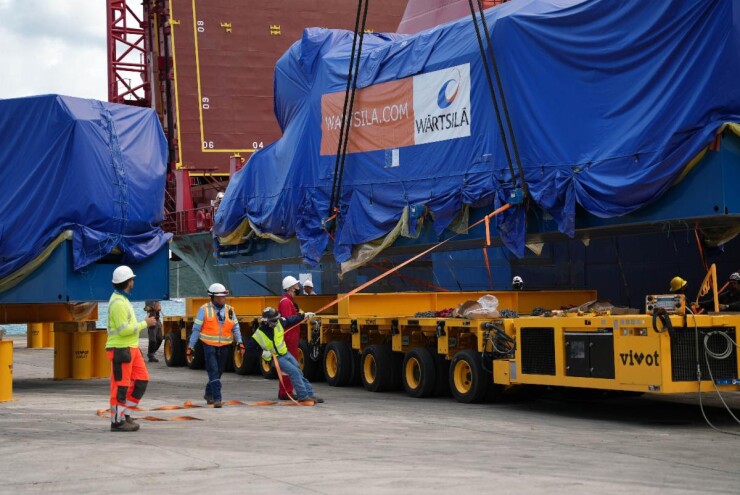Major infrastructure improvements will aid the U.S. Virgin Islands Water and Power Authority's finances in the coming months and years, officials said.
The Federal Emergency Management Agency approved funding the replacement of the authority's often non-functional electric meters for residential and institutional customers, the board announced at its meeting Thursday. The agency has promised $138 million to cover the full costs of replacing them.

The authority had been operating a newly installed battery with a 9-megawatt capacity in St. Thomas since Aug. 16, which has prevented outages by covering demand peaks, WAPA Director of Project Management Chavanté Marsh-Bultes told the board.
The new battery is part of Phase II of what WAPA calls the Wärtsilä project, after the name of the provider of the battery and power generation units. Wärtsilä provided four units in the first phase and is providing three more in the second phase.
The U.S. Housing and Urban Development Department is paying for the units.
The new units are expected to operate 95% of the time on propane and 5% on light fuel oil, which should save the utility money, since they are cheaper than the diesel used by many of the existing units.
"The completion of the Wärtsilä phase II project will have a significant impact on operational savings, putting us on a path to recovery and will greatly enhance energy reliability with the smaller, more efficient units,"
WAPA currently has a roughly $5 million monthly operating loss, Knight said.
WAPA plans two major power generation replacement projects in the next few years, in addition to the Wärtsilä units, Interim Chief Operating Officer for Electricity Ashley Bryan said.
FEMA has agreed to fully fund the replacement of power generation units 14 and 15 at the Harley power plant. The units date to the 1940s and 1950s. Unit 14 has not worked for several years and unit 15 has been unreliable and can't be fueled with propane.
FEMA has also promised to pay for 50% of the cost for maintenance and repairs on Unit 23 on St. Thomas, Bryan said. Ultimately, St. Thomas will see an essentially all new generation fleet, she said.
WAPA plans for the southern island of St. Croix is "much larger," Bryan said. WAPA plans to replace six electric generators, boilers and other features of the island's Richmond Power Plant.
The authority is currently working on a fixed-cost and scope alignment, to determine the size of and what the FEMA grant will cover.
Knight said he expected the upgrades to St. Thomas to be completed in a "much shorter time period" than the rebuild of the Richmond plant. WAPA also hopes to put in a battery in St. John.
The work in St. Thomas is expected to cost about $130 million and the work in St. Croix is expected to cost about $600 million, Bryan said, with FEMA grants covering nearly all of it.
"In the next couple of years, it's going to be a very different WAPA with the support of the federal government, all the grants they have provided to us," Bryan said.
In other developments, the board approved a new term sheet for the conversion of 2022 bond anticipation notes to 2024 BANs. The board also approved a one-year extension of a Banco Popular credit facility.





